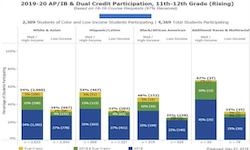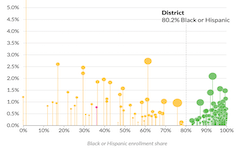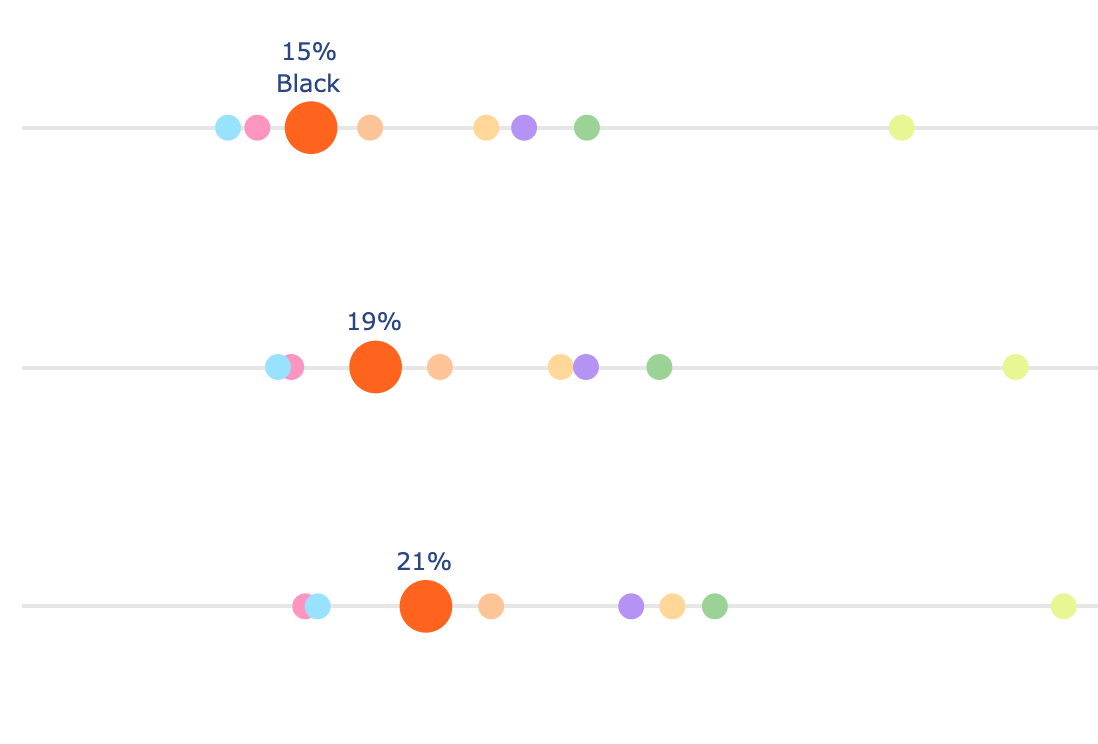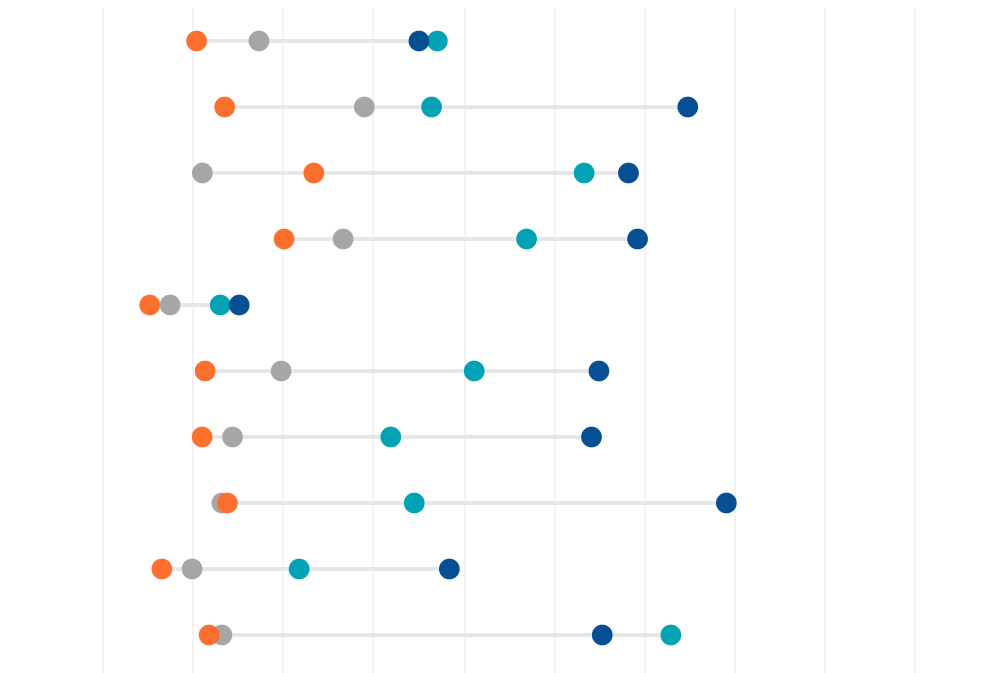The role of data
Data is vital for addressing the barriers faced by students of color in the education system and ensuring that every student can succeed in school. Advocacy organizations, schools, and district can use community-level data to develop solutions for overcoming those barriers, and make the case for changes with local administrators and policymakers.
Why it matters
Community-level data to inform local action is essential for systemic change in the education system. Public schools are funded through local property taxes, managed by local school district administrators, overseen by local school boards, and accountable to local parent-teacher associations. While the national Department of Education and state governments play an important role in setting standards and using funding to set priorities, local action—and the data that informs it—is the most effective tool available for shaping more equitable education opportunities.
Data in Action
PolicyLink: Black Prosperity in America
Using data from their National Equity Atlas, PolicyLink created a dashboard showing trends in Black prosperity over time. Explore the data to see how–despite gains in educational attainment—the Black-White income gap still persists, and what it would mean to close it.
Explore the dataCivil Rights Data Collection: Student Retention and Referrals to Law Enforcement
This dashboard displays data from the U.S. Department of Education's Civil Rights Data Collection on key factors that negatively impact student outcomes: student referral to law enforcement, and students being retained (being held back a grade).
Explore the dataMore datasets to explore on education
Our advisors recommend the below datasets for exploring trends in school funding, disparities in access, the effects of COVID-19, and more. Coming soon: These datasets will be shaped and ready for analysis in Tableau.
Have datasets you would like added to this list, or prioritized for workability in Tableau? Visit the dedicated Tableau Community Forum to suggest.
This comprehensive data portal enables anyone to build and analyze their own dataset on schools, districts, and colleges. Connect to the data via CSV download or Urban Institute’s full API.
During COVID-19, systemic inequities have impacted students’ success in remote learning. This dataset gives a sense of some of the household conditions by geographic area that could have an effect on students’ ability to learn at home.
This dataset provides a comprehensive look at how much funding states allocate toward children’s development. It comprises a number of different metrics, including overall spend on Pre-K-12 education and programs like Headstart, but it also includes important data on health and economic programs to show the intersection of all of these factors.
The Educational Opportunity Project at Stanford University produces national data on academic performance across three main indicators: average test scores, learning opportunities, and test scores over time. These data are accessible down to the community level and broken down by race for deeper insights.
These data track education outcomes that are not test-score based such as school discipline, access to advanced coursework, and school safety. The data are disaggregated by race and available at the school and district level to enable comparison.
This dataset was compiled by the journalism organization ProPublica using a variety of administrative datasets published by the National Center for Education Statistics (NCES). This data allows quick and easy calculation and evaluation of the degree of segregation by race in public schools in the United States.
Learn more about race, education and data in the US

Closing the education equity gap with data
Equal Opportunity Schools' Chief Data Officer discusses how actionable student data can improve equity.

How much does your school contribute to segregation?
This Urban Institute interactive enables anyone to explore diversity and segregation data for their school.

PolicyLink: High-quality education for all
PolicyLink describes the benefits of equitable education on families, communities, and the economy.
Questions? Feedback?
The Racial Equity Data Hub, hosted by Tableau Foundation, is a work in progress. Your feedback is welcome as the Hub continues to evolve. Visit the dedicated Tableau Community Forum to offer feedback, ask questions, and meet others interested in working with data for racial equity and justice.



